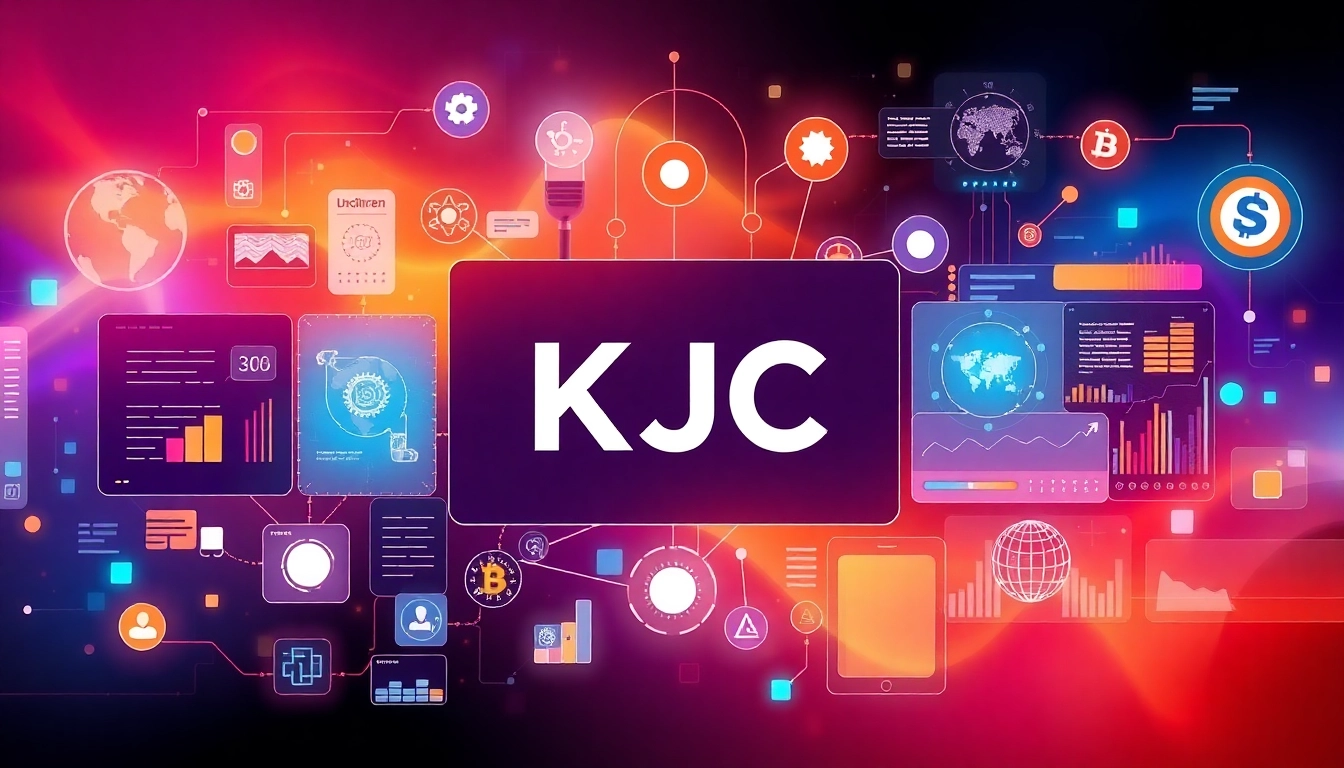Understanding the Core Benefits of a Real Estate CRM for Agents
What Is a Real Estate CRM and Why It Matters
In today’s competitive real estate landscape, establishing and maintaining strong client relationships, streamlining operations, and leveraging data efficiently are paramount for success. A Real estate CRM — Customer Relationship Management software tailored specifically for real estate professionals — serves as the backbone of modern agency operations. It consolidates contact information, property listings, transaction details, communication history, and marketing efforts into one intuitive platform. This integrated approach replaces scattered spreadsheets, emails, and multiple disconnected tools, empowering agents to work smarter, faster, and more effectively.
As technology advances, the importance of CRM systems is accelerating. They offer automated lead generation, personalized communication workflows, and real-time data insights that enable agents to anticipate client needs, close deals faster, and foster long-term loyalty. In a sector where personal trust and rapid response can define success, a robust real estate CRM has become not just an option but a necessity.
Key Features That Drive Agent Success
The top-tier real estate CRMs integrate a suite of features designed to enhance every aspect of an agent’s workflow. These include:
- Centralized Client Database: Stores all client interactions, preferences, and transaction history in one secure location, facilitating personalized service.
- Lead Management & Smart Matchmaking: Uses advanced algorithms and extensive data (over 12 billion data points) to connect motivated buyers and sellers with agents, generating exclusive leads.
- Listing & Property Data Access: Provides instant access to over 300 million property records, automates listing creation, and offers market insights for accurate valuations.
- Workflow Automation: Tracks tasks, deadlines, and statuses automatically, reducing manual work and preventing overlooked steps.
- Transaction & Document Management: Organizes contracts, disclosures, and closing documents, streamlining the entire buying/selling process.
- Communication & Collaboration Tools: Features integrated emailing, messaging, and real-time collaboration with clients and team members, accelerating negotiations and appointment scheduling.
- Viewing & Negotiation Integration: Allows scheduling, offer negotiations, and feedback collection within one unified dashboard.
- Automated Alerts & Notifications: Keeps clients and agents updated via real-time updates, enhancing transparency and trust.
These features work synergistically to boost productivity, reduce administrative overhead, and elevate client satisfaction — all key drivers for sustained success in real estate.
How CRMs Improve Client Relationships and Retention
A sophisticated CRM system transforms the way agents interact with clients. By maintaining detailed profiles of client preferences, communication history, and transaction milestones, agents can deliver personalized experiences that foster trust and loyalty. Automated drip campaigns, timely follow-ups, and tailored property alerts ensure clients feel valued and informed throughout their home journey.
Moreover, centralized communication prevents miscommunication and ensures every touchpoint is tracked. For instance, as soon as a client views a property, the system logs their interest and can trigger personalized follow-up emails or call reminders — maximizing engagement without manual effort.
The ability to anticipate client needs using analytics and predictive data enhances satisfaction and encourages repeat business and referrals. For example, by analyzing market activity and client behavior, agents can proactively suggest suitable properties or investment opportunities, positioning themselves as trusted advisors.
Integrating the Right Real Estate CRM Into Your Workflow
Choosing a CRM That Fits Your Business Size and Needs
Not all CRMs are created equal, and selecting one that aligns with your unique business model is critical. For solo agents or small teams, simplicity and ease of use may be priorities, while larger brokerages might require advanced features like API integrations, automated marketing campaigns, and comprehensive reporting.
Leading platforms like Anyone offer scalable solutions starting at $99 per month, equipped to handle operations from individual agents to full-scale brokerages. When evaluating CRMs, consider factors such as the volume of listings, client pool, transaction complexity, and integration capabilities with other essential tools (e.g., mortgage providers, Notaries, marketing systems).
Implementing a Seamless Transition from Manual Processes
Transitioning from traditional manual methods to a digital CRM requires strategic planning to minimize disruption. Begin by auditing your current workflows: identify repetitive tasks, paper-based processes, and fragmented communication channels. Choose a CRM with import tools that auto-fill property data, upcoming features like a unified viewing dashboard, and guided transaction facilitation.
Next, create a phased implementation plan, involving data migration, staff training, and process reengineering. Utilize onboarding resources, tutorials, and dedicated support teams to assist. Conduct pilot tests to identify bottlenecks, gather feedback, and refine workflows before full deployment.
Successful transition hinges on clear internal communication and change management. Encourage team members to embrace the new system’s efficiencies and to provide ongoing feedback for continuous improvement.
Training Yourself and Your Team for Maximum Efficiency
Proper training is crucial to unlock the full potential of your CRM. Invest in comprehensive onboarding sessions—covering features such as lead management, transaction tracking, and communication tools. Leverage vendor-provided tutorials, webinars, and user communities for ongoing learning.
Encourage a culture of continuous improvement by setting performance metrics, such as lead conversion rates and time-to-close, that can be tracked within the system. Use analytics dashboards to identify training gaps and adjust strategies accordingly.
Additionally, assign CRM champions within your team to serve as go-to experts, facilitate knowledge sharing, and encourage best practices across your agency.
Advanced Tools and Features in Modern Real Estate CRMs
Automated Lead Generation and Smart Matchmaking
The power of modern CRMs lies in their ability to generate and qualify leads automatically. Using extensive data sources—such as property databases, market trends, and behavioral analytics—the platform’s algorithms identify motivated buyers and sellers, matching them with suitable agents. Anyone’s proprietary ‘Find an Agent’ tool exemplifies this, leveraging over 12 billion data points to deliver exclusive, motivated leads directly to your inbox.
This intelligent matchmaking not only increases lead quality but also significantly reduces time spent on cold outreach, allowing agents to focus on closing deals.
Transaction Management and Document Organization
Efficient handling of transactions is critical in real estate. Modern CRMs automate many transaction stages—from initial agreement to closing—by providing guided workflows, automated reminders, and document auto-filling. Features like integrated viewing schedules, negotiation modules, and real-time status updates keep every stakeholder on the same page.
Document organization is streamlined with secure storage, version control, and easy sharing. Connect your preferred notaries and mortgage providers directly, creating a seamless end-to-end experience that minimizes delays and errors.
Real-Time Communication and Collaboration with Clients
The modern real estate CRM serves as a centralized hub for all client communications—from emails and messages to live collaboration on viewing schedules and contracts. Real-time notifications ensure clients stay informed, increasing transparency and trust. Features like shared workspaces allow clients, agents, and team members to collaborate efficiently, reducing back-and-forth and accelerating decision-making.
Enhanced communication tools encourage more engagement, leading to higher satisfaction and likelihood of repeat business.
Best Practices for Using a Real Estate CRM to Grow Your Business
Data Security and Privacy Considerations
Protecting client data is paramount. Top CRM providers utilize advanced encryption, regular security audits, and compliance with regulations such as GDPR and CCPA to safeguard sensitive information. Ensuring your platform offers these protections, along with tamper-proof audit logs, access controls, and secure data hosting, is essential.
It’s equally important to establish internal data policies—such as regular password updates, role-based access, and employee training on cybersecurity best practices—to prevent breaches and maintain client trust.
Tracking Performance Metrics and Improving Strategies
Data-driven decision-making is the hallmark of successful real estate businesses. Use your CRM’s analytics dashboards to monitor lead conversion rates, average time-on-market, client satisfaction scores, and revenue growth. Analyzing this information enables you to identify bottlenecks, optimize marketing campaigns, and personalize client interactions further.
Implement regular review cycles—weekly or monthly—to assess key metrics, set actionable goals, and adjust workflows for continuous improvement.
Scaling Your Business with International Client Management
As your business grows, expanding into international markets becomes feasible with the right CRM. Features such as multi-currency support, language localization, and integration with global legal and financial services facilitate cross-border transactions. Additionally, platforms like Anyone enable collaboration across time zones, manage multiple property markets, and maintain compliance with international data regulations.
Leveraging global data sources and advanced matchmaking algorithms ensures you can serve a diverse clientele efficiently, opening new revenue streams and establishing your agency’s international reputation.
Future Trends in Real Estate CRMs and Technology Integration
Upcoming Features and Platform Enhancements
The evolution of real estate CRMs centers around increasing automation, AI-powered insights, and integrated service providers. Future enhancements include advanced AI-driven valuations, virtual reality property tours, and integrated online ‘Buy Now’ functionalities to expedite sales.
Integrating Mortgage, Notary, and Valuation Services
Seamless integrations with mortgage brokers, notaries, inspectors, and valuation services are transforming transaction workflows. These connectors enable instant approvals, document signing, and real-time status updates—reducing delays and improving the customer experience. Platforms like Anyone are already working to incorporate these services, creating an all-encompassing ecosystem that simplifies complex processes.
Leveraging Data Analytics for Market Insights
Advanced analytics allow agents to forecast market trends, identify high-potential properties, and tailor marketing strategies. By parsing vast datasets—such as over 300 million property records and 12+ billion data points—agents can advise clients with confidence and stay ahead of competitors. Incorporating predictive analytics into CRM platforms enhances decision-making precision and revenue potential.




